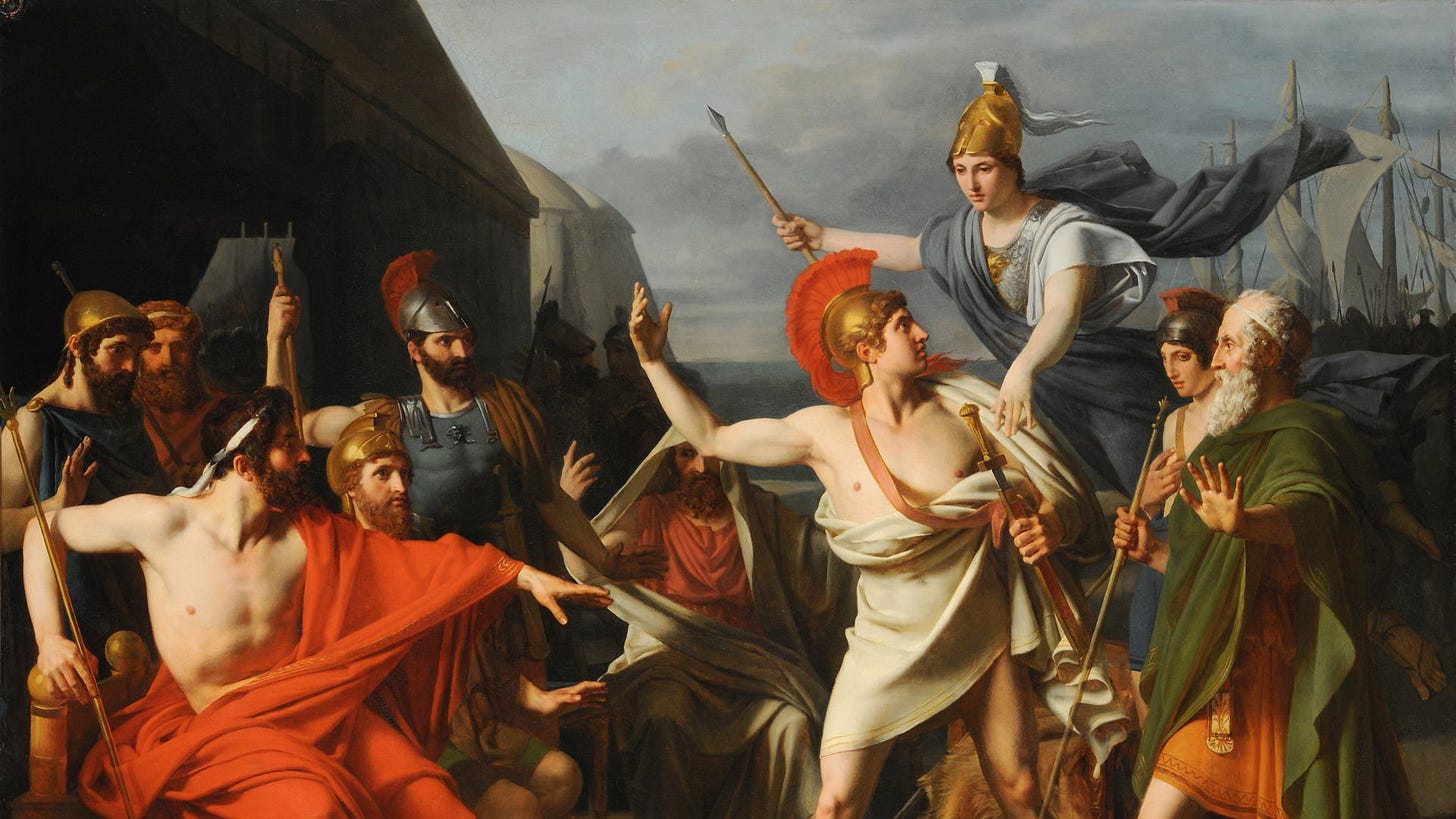The Rage of Achilles
Lessons about anger management from Greece's greatest warrior.

Rage (μῆνις) is the very first word of Homer’s Iliad. It sets the entire direction of the epic. In fact, the rage of Achilles and the will of Zeus are threads that weave throughout the 24 books of the Iliad into a masterful conclusion.
We’re introduced to the source of Achilles’ rage right at the start of book 1. Agamemnon, supreme commander of the Achaean army, has stolen Achilles’ love toy, Briseis. He flies into a rage and expresses his anger in ways highlighted below.
Perhaps we can all learn how to deal with our own anger and rage by looking at the life of Achilles 😉:
Response #1: Commit Murder
After hearing about Agamemnon’s plan to take Briseis, Achilles considers regicide:
The heart in his rugged chest was pounding, torn…
Should he draw the long sharp sword slung at his hip,
thrust through the ranks and kill Agamemnon now?—
or check his rage and beat his fury down? (all translations by Fagles)
Athena (personification of wisdom) intervenes to stop the murder by telling Achilles to “hold back now.”
For the record, murder is not a suggested response, it’s just one of the options Achilles considered. Other violent solutions include punching the walls of Troy or breaking the chariot speed limit.
Response #2: Cry Like a Baby
When murder is thwarted, we’re told that Achilles “wept, and slipping away from his companions, far apart, sat down on the beach…” When murder is thwarted, you can always weep, letting your tears collect in the vast expanse of the ocean.
Response #3: Tell Your Mother
While the tears of Achilles fall into the ocean, he reaches “out his arms, again and again he prayed to his dear mother.” His mother hears his prayers (she is a goddess named Thetis after all) and agrees to plead with Zeus on his behalf. That sets in motion the “will of Zeus” that plays out through the rest of the Iliad. When murder or temper tantrums don’t seethe your rage, you can always become a tattle tale.
Response #4: Withdraw and Let Your Friends get Slaughtered
While playing the will of Zeus waiting game, Achilles decides to deal with his rage using the classic marriage tactic of withdrawal. As Greece’s greatest warrior, his fellow soldiers miss his presence in battle and promptly become food for birds and dogs. But don’t think it’s all raging doom and gloom! While Achilles waits, he feasts and sings epic poetry while strumming his lyre.
As we can see from the life of Achilles, there are a number of healthy ways to deal with rage, including regicide, weeping, tattling, and withdrawing.
The source of Achilles’ rage was not the girl. He even states “my hands will never do battle for that girl.” Instead, his pride was hurt. His honor was degraded. His glory tarnished. In knowing he had a short life and that Hades didn’t have much to offer other than a shadowy eternal existence, his whole purpose was about glory.
We’re still talking about him today.



After you published your article about the book reading club on ‘The Iliad,’ I started reading it too, and I’m currently on the second book.
I suppose there’s value in having all the options on the table no matter how rash or irrational they might seem at first.